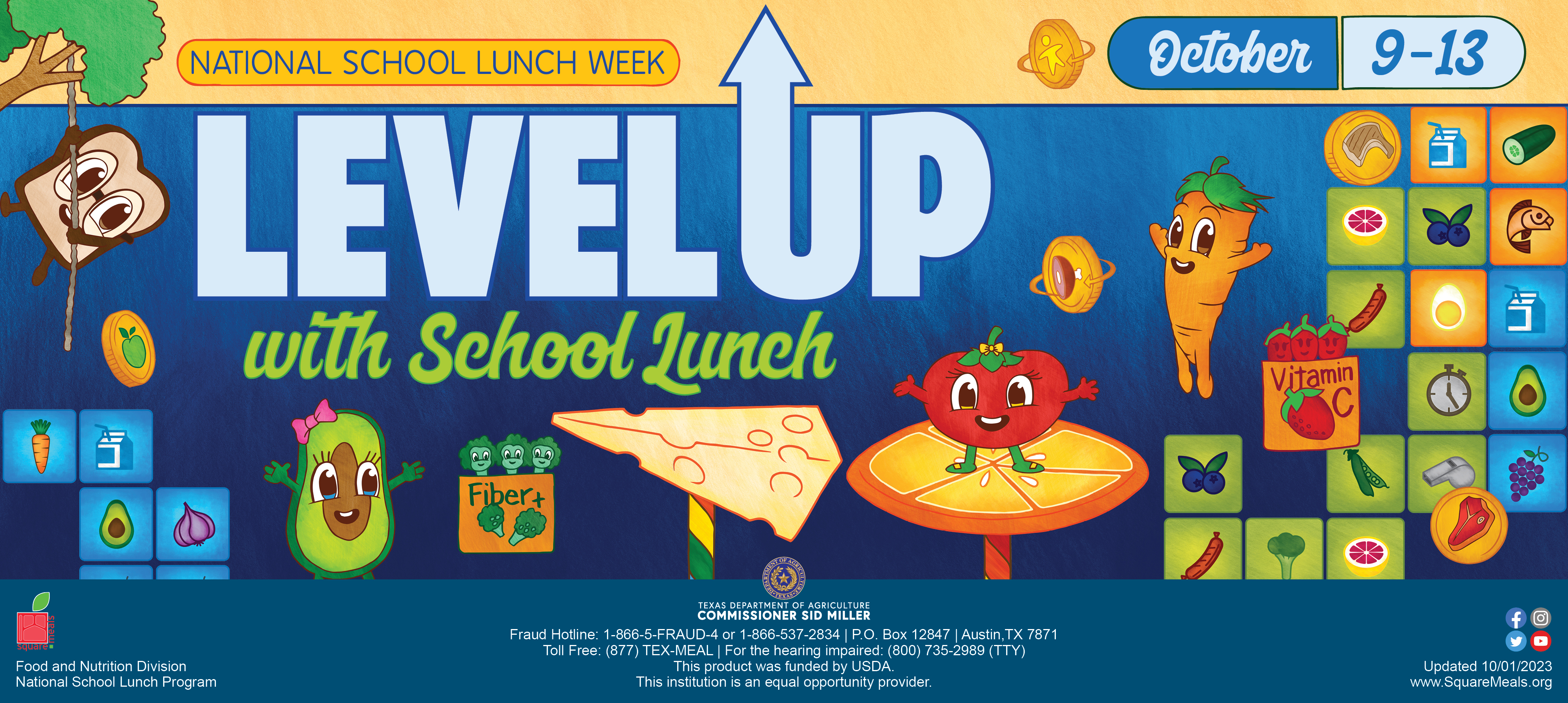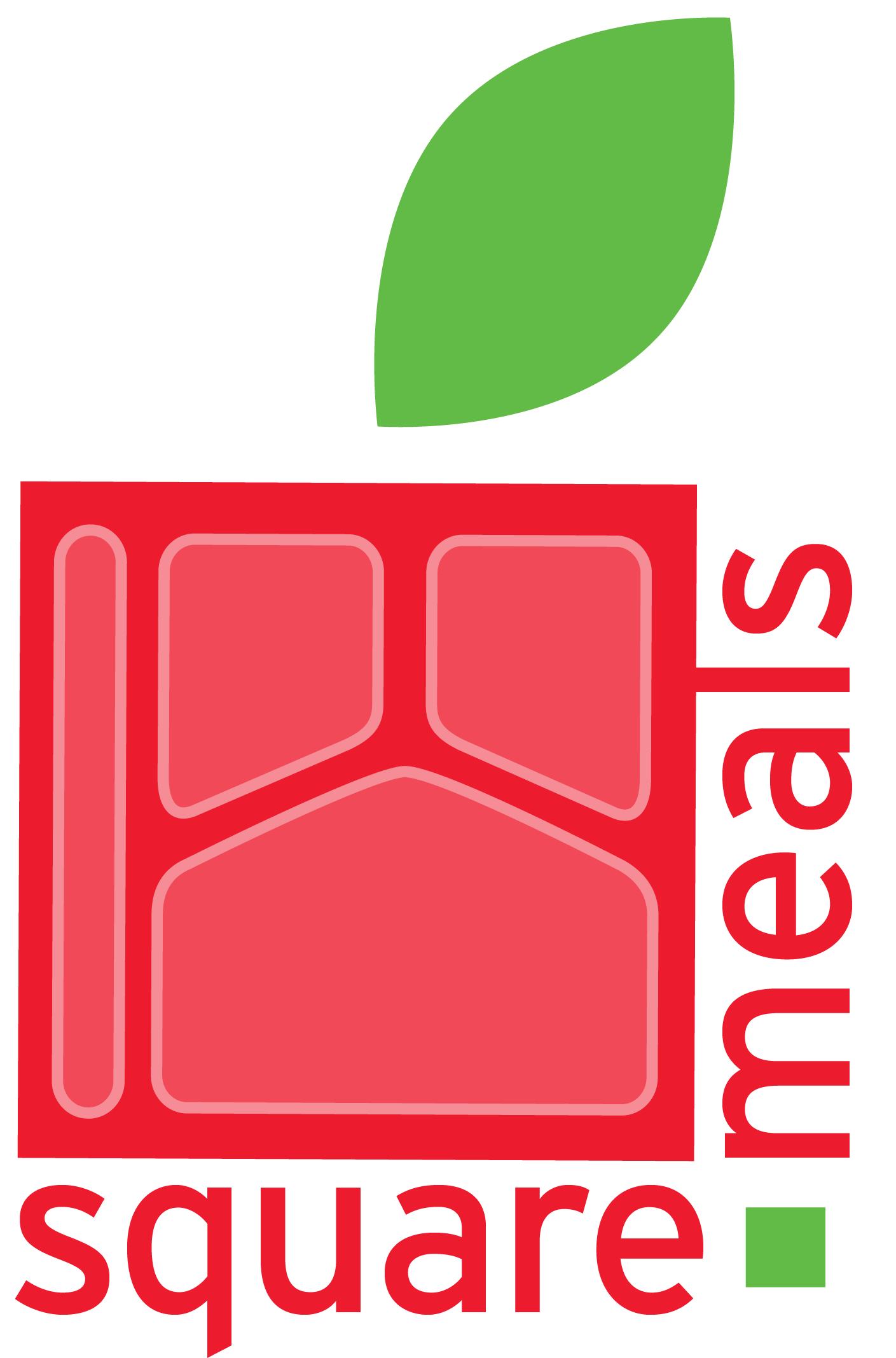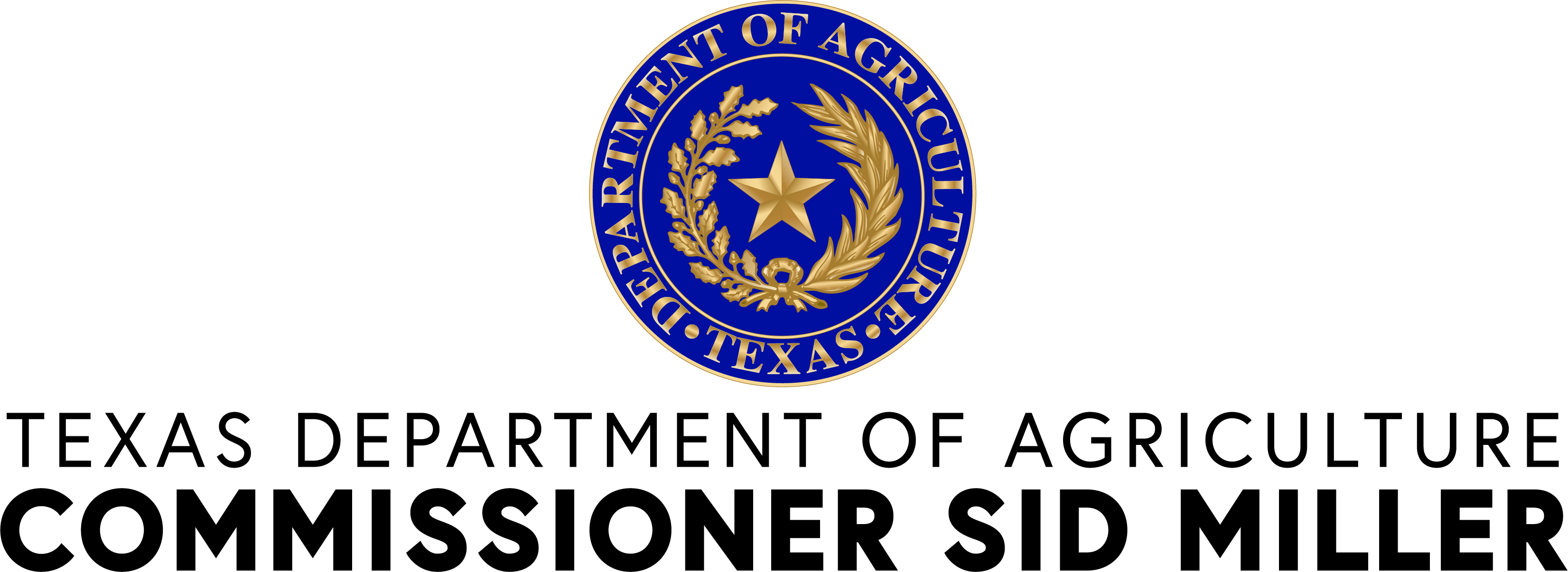Home
Dear Vanguard Academy Families,
Vanguard Academy Child Nutrition Program is blessed to serve our community for the 2023-2024 school year. Meals, food and beverages sold or served in schools meet state and federal requirements based on the USDA dietary guidance. All meals are reimbursement provided by the Texas Department of Agriculture (TDA). The reimbursement of meals are federal funds that indicate that meals are served in school. All meals, foods and beverages are prepared and served by qualified child nutrition professionals. We provide students with access to a variety of affordable and appealing foods that meet the health and nutrition needs of students.
Vanguard Academy Child Nutrition Program follows the Texas Department of Agriculture (TDA) administers the National School Lunch, School Breakfast and Child & Adult Care Food Program of Texas Public schools. TDA provides marketing projects and procurement assistance to promote nutritious eating habits, conducting on-site and off-site compliance monitoring, and coordinating training through the REGION ONE EDUCATION SERVICE CENTER.

On the first Friday in May, we celebrate School Lunch Hero Day! In 2024, this special day of celebration will be on May 3. We recognize school nutrition professionals and the difference they make every day!
Between preparing healthy meals for Texas students, adhering to strict nutrition standards, navigating student food allergies, and offering service with a smile, school nutrition professionals are true heroes.
School Lunch Hero Day provides the perfect opportunity to recognize the hardworking professionals in your school cafeterias.
National School Lunch Hero Day Video
National School Breakfast Week Press Release 2024 / March 4-7, 2024
National School Lunch Program School Breakfast Program - Community Eligibility Program
National School Lunch Week Free Student Activity Sheets
National School Lunch Week
October 09-13, 2023
For Immediate Release:
October 06, 2023
VANGUARD ACADEMY CHARTER SCHOOL JOINS COMMISSIONER MILLER IN CELEBRATING NATIONAL SCHOOL LUNCH WEEK
RGV, Texas - Vanguard Academy Charter School joins Texas Agriculture Commissioner Sid Miller in celebrating National School Lunch Week Oct. 9-13, using the Texas Department of Agriculture (TDA) and School Nutrition Association (SNA) theme “Level up with School Lunch.” All week Vanguard Academy Charter School will serve fun and healthy lunches that include all the nutrition students need to learn, grow, and thrive.
“A healthy lunch fuels success in the classroom,” Commissioner Miller said. “Every year TDA works hard to ensure our school nutrition teams have the resources they need to teach Texas children about healthy eating habits that will last long after the school day is done. This week, I encourage young Texans to join us in supporting school nutrition in Texas, as we ‘Level Up with School Lunch’ to see how a balanced diet can make a difference in the classroom and for a lifetime.”
Vanguard Academy Charter School encourages every student to enjoy a nutritious school lunch every day this week. They can enjoy healthy menu items like fresh fruits and vegetables, whole grains, low fat/low sodium proteins and more! Planned activities include: student activity sheets. Vanguard Academy Charter School parents can tell their children about the National School Lunch Week events and encourage them to eat a school lunch. More information on the Vanguard Academy Charter School’s menu and serving times can be found at their website here: https://www.vanguardacademy.education/apps/pages/index.jsp?uREC_ID=1125491&type=d&pREC_ID=1381831 or by contacting your child’s school.
“Thank you TDA for the blessing of providing Vanguard Academy students with a healthy meal” said Child Nutrition Director, Galina O. Reyes.
National School Lunch Week
The Level Up with School Lunch theme is intended to engage students and encourage them to eat healthy school meals by linking nutritious foods to video games that resonate with them. Students can gain health points (aka “HP”) with fruits and vegetables or “Power Up” with protein food from your menu.


TDA Square Meals Annual Civil Rights Training website (English and Spanish):
https://squaremeals.org/FandN-Resources/Training/Civil-Rights
Nondiscrimination Statement
|
Assistance available in English and Spanish. Please call 877-TEX-MEAL (877-839-6325) for help. Additional translations services available as well. |
||
|
In accordance with federal civil rights law and U.S. Department of Agriculture (USDA) civil rights regulations and policies, this institution is prohibited from discriminating on the basis of race, color, national origin, sex (including gender identity and sexual orientation), disability, age, or reprisal or retaliation for prior civil rights activity. Program information may be made available in languages other than English. Persons with disabilities who require alternative means of communication to obtain program information (e.g., Braille, large print, audiotape, American Sign Language), should contact the responsible state or local agency that administers the program or USDA’s TARGET Center at (202) 720-2600 (voice and TTY) or contact USDA through the Federal Relay Service at (800) 877-8339. To file a program discrimination complaint, a Complainant should complete a Form AD-3027, USDA Program Discrimination Complaint Form which can be obtained online at: https://www.usda.gov/sites/default/files/documents/USDA-OASCR%20P-Complaint-Form-0508-0002-508-11-28-17Fax2Mail.pdf, from any USDA office, by calling (866) 632-9992, or by writing a letter addressed to USDA. The letter must contain the complainant’s name, address, telephone number, and a written description of the alleged discriminatory action in sufficient detail to inform the Assistant Secretary for Civil Rights (ASCR) about the nature and date of an alleged civil rights violation. The completed AD-3027 form or letter must be submitted to USDA by: |
||
|
Mail:
U.S. Department of Agriculture
Office of the Assistant Secretary for Civil Rights
1400 Independence Avenue, SW
Washington, D.C. 20250-9410; or
Fax: (833) 256-1665 or (202) 690-7442; or
Email: [email protected].
|
||




